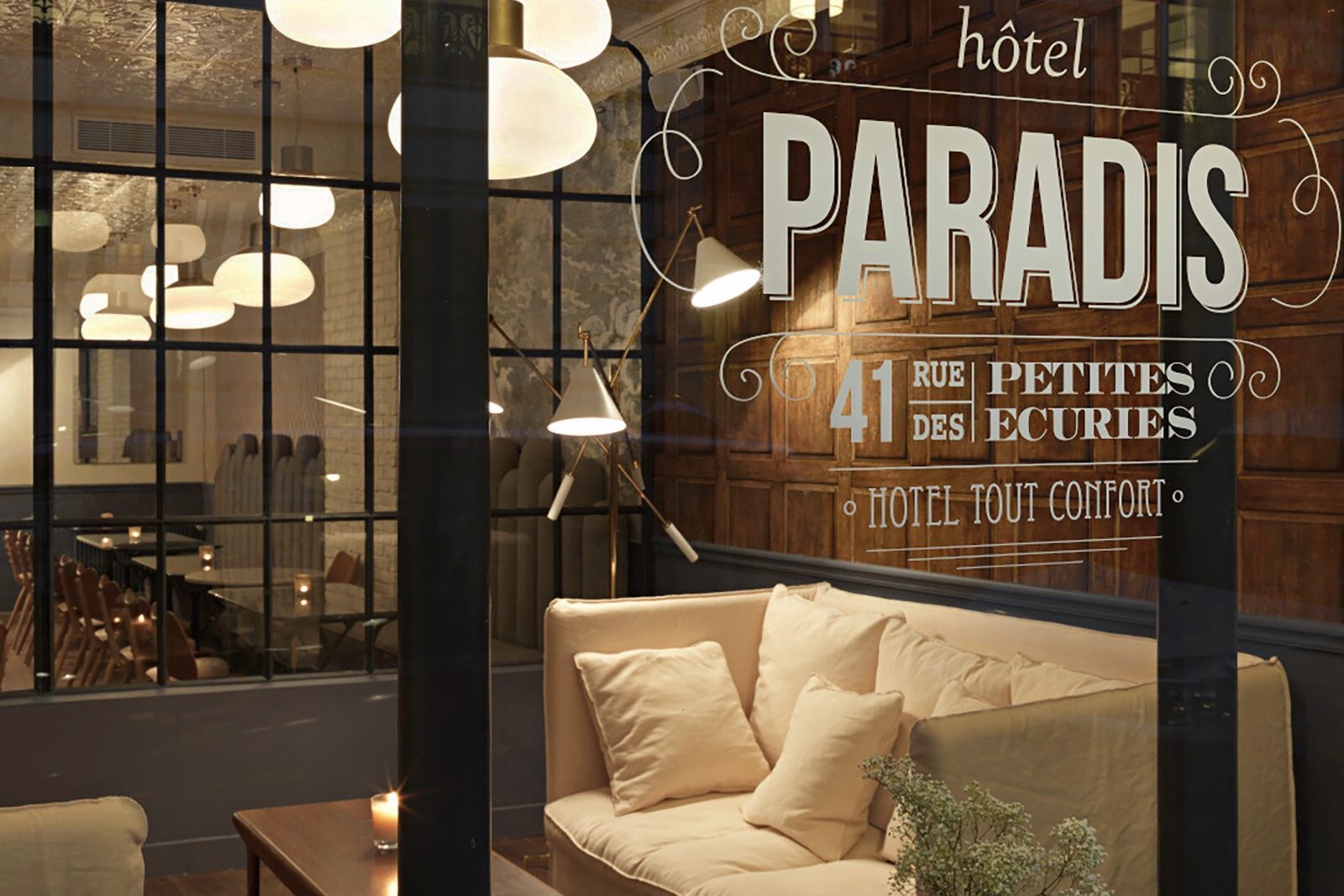Skift Take
A beautiful, well designed room in Paris for 150 euros a night? This might be an interesting counter to the rise of Airbnb in the city.
 Colin Nagy, head of strategy at Fred & Farid, a global advertising agency, writes this opinion column for Skift on hospitality, innovation, and business travel. “On Experience” dissects customer-centric experiences and innovation across hospitality, aviation, and beyond.
Colin Nagy, head of strategy at Fred & Farid, a global advertising agency, writes this opinion column for Skift on hospitality, innovation, and business travel. “On Experience” dissects customer-centric experiences and innovation across hospitality, aviation, and beyond.
For the past several years, the Paris hotel market had an acute gap. On one side of the market, there’s the beautiful, high end hotels: The newly refurbished Ritz, the Park Hyatt, a new Peninsula, a recently reopened Hotel de Crillon, Le Meurice, and countless others catering to those that don’t have to look too closely at the price.
Then, on the other there’s the smaller, mom and pop hotels and the cheaper, budget options in the city. The choice has largely been between beautiful and pricey, or affordable with terrible decor.
Airbnb has quickly filled the gap In the middle of the price spectrum, having grown exponentially to around 65,000 listings in Paris today. But, as with other cities, the platform is being cracked down on based on a Paris City Council decision making it mandatory as of December for people renting their apartments to register with the town hall.
The interesting opportunity lies in the detail oriented, yet affordable (think €150 a night) bucket, a space where Parisian hotelier Adrien Gloaguen has been investing his time and energy, creating a mini hospitality renaissance in the city. One that goes beyond the boutique hotel cliche into something more special and thoughtful. And one that squeezes incredible design details out of a value-minded budget.
Raised in Paris, Gloaguen is a self-taught hotelier who bought his first hotel right on the left bank after finishing his studies in 2004. “In this first hotel I had all roles: plumber, receptionist, doorman, he says. “I learned everything with this first hotel, and this experience was the best school.”
He then saw his first opportunity to meld design and a great price. His next hotel, the Hotel Paradis, was the blueprint that has since continued into two other hotels, The Panache, and recently the Bienvenue, which opened in June 2017.
On his start, Gloaguen says, “I wanted to create a hotel with a great design and great prices. This is what I tried to do with Hotel Paradis in 2011. Dorothee Meilichzon signed the design and rooms are around €120 a night. Before that, we only had the choice between beautiful hotels at very high prices or affordable hotels with terrible decoration.”
Design Forward
The rooms at his hotels are thoughtful, with beautiful fixtures, elegant lighting elements, and intentionally limited technology in the room. The common areas have a cozy, intimate and decidedly boutique feel, with a noticeable personal touch from the front desk staff.
He strongly believes that price constraints can be powerful and unique creative brief to talented designers, and believes in pushing them to achieve under strict parameters. Gloaguen says, “The designers I work with understand my project and work accordingly; the price constraint is something that has made the designers even more creative.”
And with Airbnb as a new reality, what are the primary differences in the experience or market? Gloaguen suggests that his hotels also need to serve as a hub for French cultural diplomacy. He thinks the hotel of not just a place to sleep, but to enable better experiences for visitors. So that clients are not lost in a city, they can be helped — and hipped — to interesting experiences that might not exactly appear on your Airbnb guest notes.
He doesn’t hold any ill will toward the platform, though, stating, “I’m not against Airbnb, I think they initiated a new way to travel — like car versus train — the users of one are not the users of the other.”
Gloaguen is optimistic about how special the Paris hospitality scene feels right now, “I totally think that people are tired of chains and of the standardization; they want a unique experience when they travel and this is what they get when they come to our hotels. They also want to be fully integrated in the Parisian lifestyle and this is how they feel when they stay in smaller hotels, they don’t feel like tourists anymore but like real Parisians.”
He cites the dynamism of the Paris independent hospitality scene. “Paris’ strength is that there are very few hotel groups, but a lot of small hotel owners that are all friends with each other and this is what makes it unique.”
This clubby, entrepreneurial approach, also seen in hotels such as the Grand Pigalle, and the Amour, is ushering a new hospitality tier. And as Paris tourism seeks to overcome terrorism fears and build from the positive glow of Macron and his desire for progress, Gloaguen and a new band of hoteliers are ushering in something new and interesting for the city.
Have a confidential tip for Skift? Get in touch
Tags: hospitality, On Experience, paris
Photo credit: A public space in the Hotel Paradis in Paris, France. The hotel is one of a new breed of well-designed budget properties in the city. Hotel Paradis
